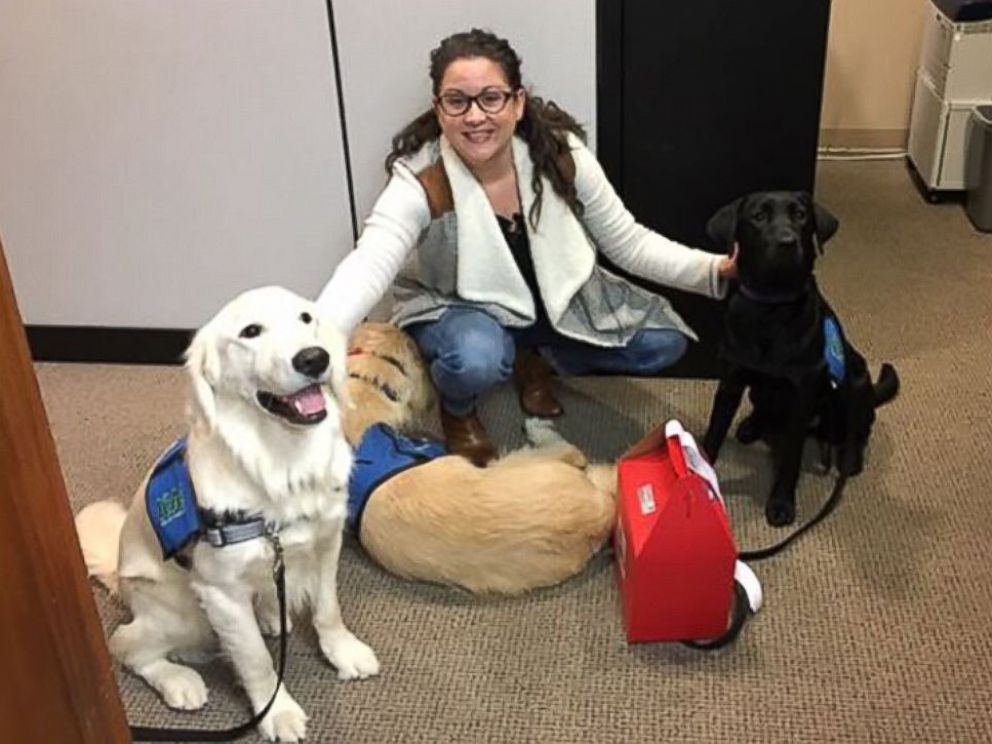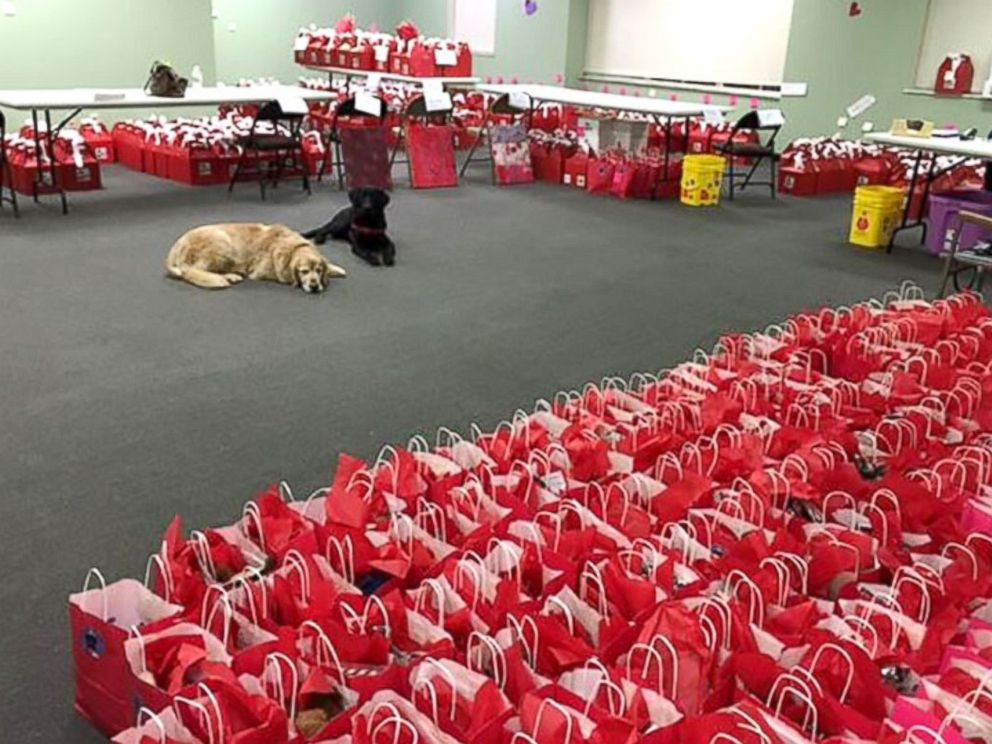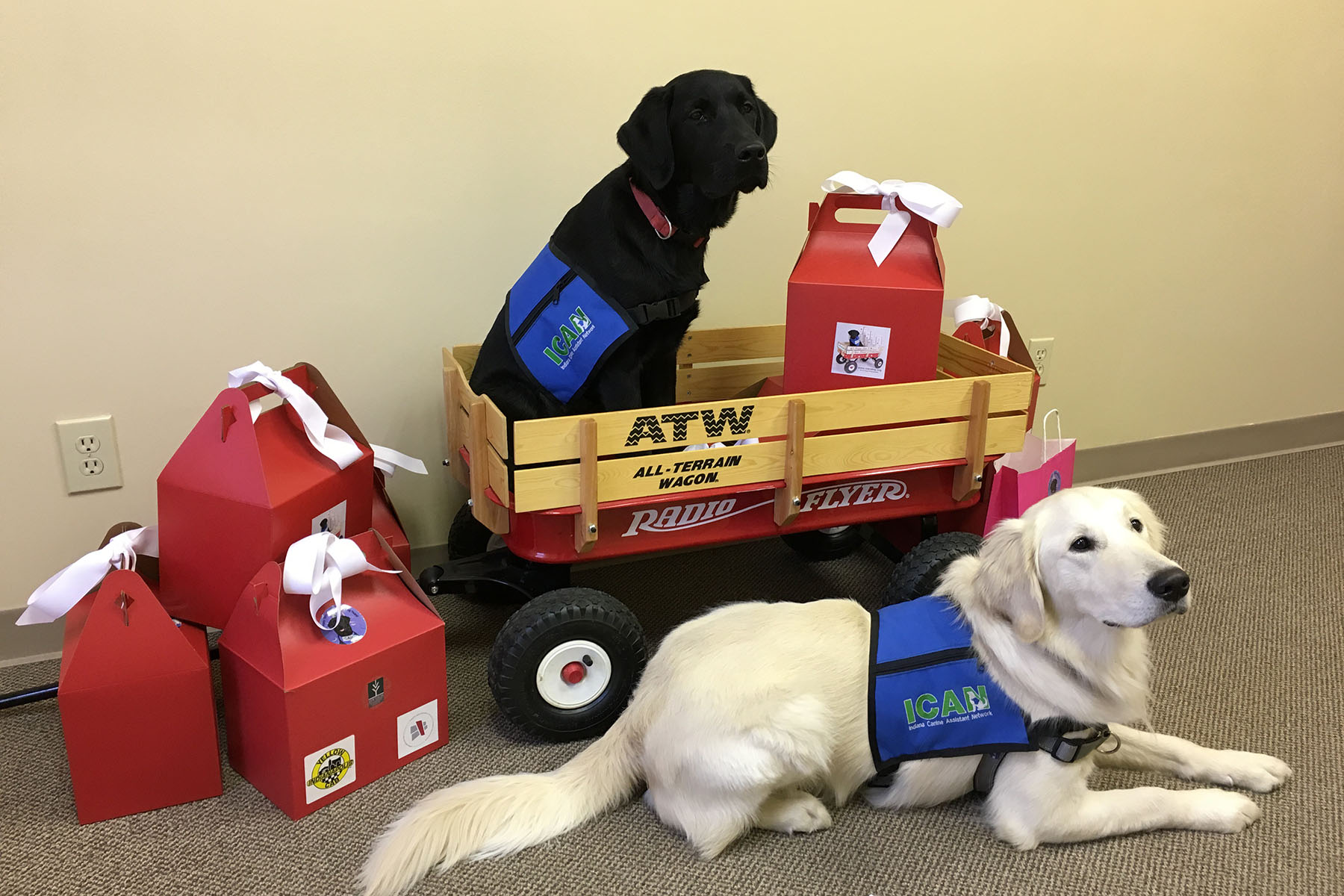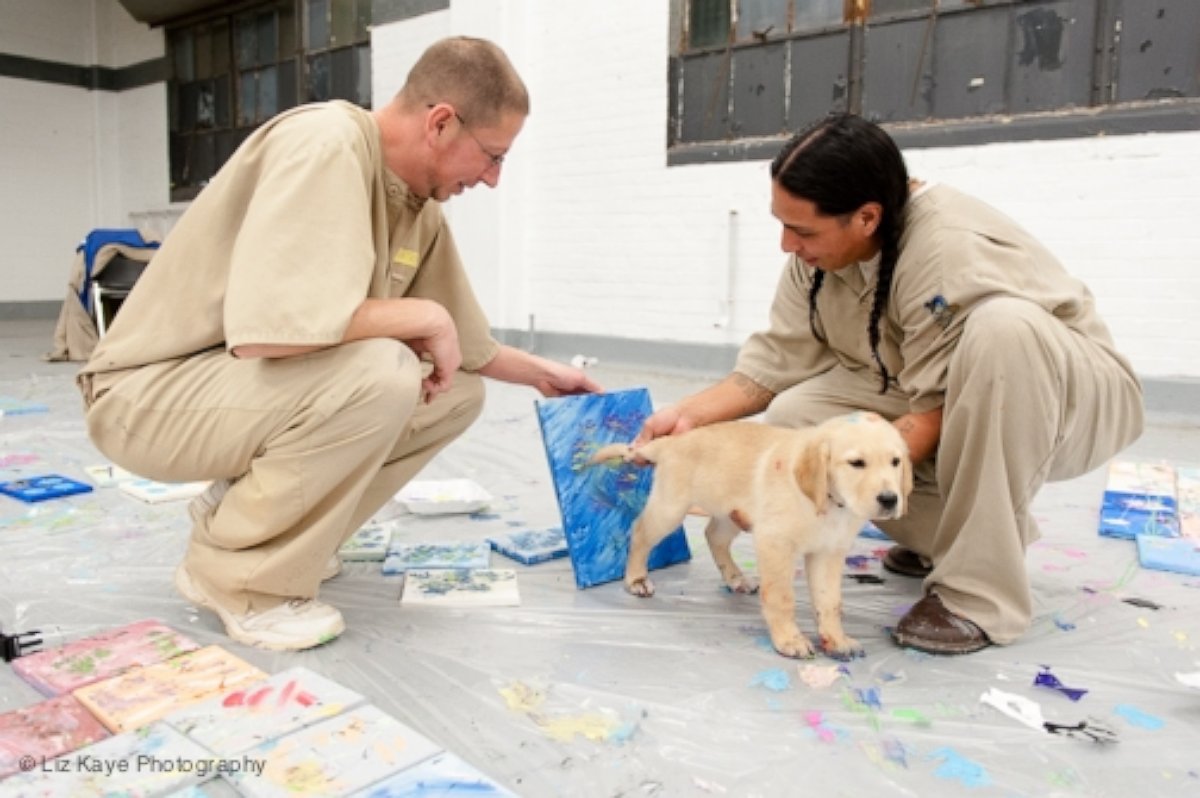Service dogs trained by inmates deliver Valentine’s Day treats
Dogs will deliver close to 650 Valentine’s Day boxes throughout Indianapolis.
— -- Nearly two dozen dogs will deliver close to 650 Valentine’s Day gift boxes throughout the city of Indianapolis as part of Puppy Love Valentine 2017, an annual fundraiser for ICAN, an Indianapolis-based service dog organization.
The valentine-delivering dogs are service dogs currently in training to help people with disabilities ranging from PTSD to diabetes and autism. The dogs are trained in three prisons throughout the Indianapolis area.
The Valentine's Day deliveries are driven to businesses around the city by ICAN staff and volunteers.
“The first reaction we get is they think their husband, or whoever gave the Valentine, actually gave them the puppy,” said Denise "Dino" Sierp, director of development and outreach for ICAN. “Then everybody in the office starts coming out and everybody gets excited."
She added, "Some people get on the floor with the dogs and they roll around. It's pure joy."

The dogs come bearing a $50 Valentine's Day gift box that includes treats such as cookies, artwork designed by dogs, a heart-shaped candle holder, handmade scarf and greeting cards featuring the ICAN service dogs.

Many of the items inside the gift box – including the service dog artwork - are also made by prison inmates who participate in the service dog training.
ICAN began working with local inmates on Valentine’s Day 2002. The organization now has around 50 dogs in training on a continual basis at the three local prisons, including a women’s prison.
The idea to give inmates the opportunity to train service dogs for people in need came from Dr. Sally Irvin, the founder of ICAN.
“She saw that it rehabilitated the inmates and provided them with loyalty and trust, which is huge,” Sierp said. “They find freedom in training the dogs within the prison’s four walls.”
Sierp said of ICAN's beginnings, "It started with a dozen volunteers and first worked with kids at juvenile detention facilities. Because of the turnover, they started to then go into maximum security prisons because the inmates are there longer and it provides more stability for the dogs."
'Brought a whole other aspect into the facility'
Andrew Cole oversees ICAN's service dog training program at Pendleton Correctional Facility, a maximum-security prison in Pendleton, Indiana.
“What we challenge everybody here on is that the easiest and most positive way to turn something around is to give back,” said Cole, the facility’s assistant superintendent of reentry. “This is selflessness on the ultimate level.”

He continued, “To know that these dogs, after all your hard work, that these dogs are going to help somebody for the rest of that dog’s life, it’s an amazing thing.”
The dog handlers at Pendleton Correctional Facility go through a rigorous interview process to be chosen for the program, ultimately earning credits for an animal trainer apprenticeship. Out of 1,750 inmates in the prison, a group of 15 dog handlers and six alternates are involved in the program.
The service dogs in training are with the inmates at all times, including living with them in a special housing unit. ICAN staff comes to the prison weekly for a formal training session.
“A lot of these guys had never interacted with a dog, let alone trained a dog,” Cole said. “We’ve done a lot of stuff with ICAN that was a first for our facility.”
He added, “You think here of aggression dogs and drug dogs. Offenders were allowed to pet a dog for the first time in 20 years or maybe ever in their life...this brought a whole other aspect into the facility."
The prisoners are also able to know details about the person with a disability to whom the dog will go. ICAN holds graduation events at the prisons before the dogs move on to their new homes.
"It’s an amazing experience to witness and the handlers take pride in that," Cole said. "We’ve seen handlers who get attached to the dogs but at the same time when the dog leaves they know the dog is going to help somebody lead their life easier for the rest of their life."
'It's the dogs that bridge it all together.'
This year, Pendleton’s culinary arts program contributed to the Puppy Love gift box cookies in the shape of paw prints, while other inmates produced the heart-shaped candle holders.
The inmates in the prison’s ICAN training program helped the dogs create the artwork in the gift box, which involves having the dogs step in paint and touch the canvas with their paws, noses and tails.

“It’s just like we’re in somebody’s garage doing this,” Cole said of the art project. “It makes them feel like they’re not in prison and that they’re doing something for somebody else.”
ICAN’s Puppy Love project peaks at Valentine’s Day – raising more than $30,000 for the organization – but the opportunity to have an ICAN service dog deliver a surprise exists year-round, from birthdays to even marriage proposals.
“We serve two under-served populations, prisoners and the people with disabilities who the dogs will serve,” Sierp said. “It’s the dogs that bridge it all together.”




